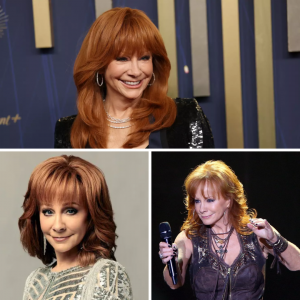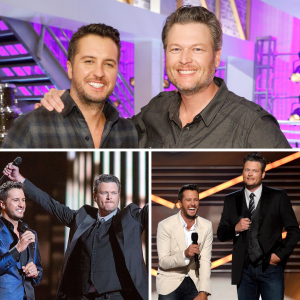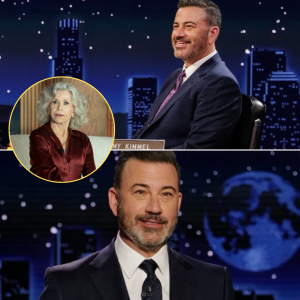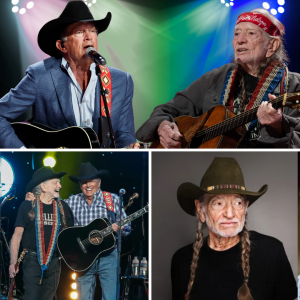Jimmy Kimmel’s return to late-night television after a suspension that shook both the industry and the political world was marked by defiance, emotion, and an unforgettable guest appearance. On September 23, just days after ABC halted his show in response to a controversial monologue, Kimmel came back to the airwaves with a performance that blended apology with protest. The night’s most talked-about moment arrived when Robert De Niro appeared unannounced in a biting parody sketch, playing the “new head of the FCC.” What seemed like comedy on the surface was layered with pointed commentary about censorship and the hidden pressures that shape what Americans see on television.

Kimmel’s suspension had been announced on September 17, after he made remarks about the fatal shooting of conservative activist Charlie Kirk. Delivered in his signature mix of satire and commentary, the segment quickly drew condemnation from FCC chair Brendan Carr. Carr suggested that ABC affiliates could face scrutiny if the network failed to take action, and several powerful groups, including Nexstar and Sinclair, responded by dropping the show. The fallout forced Disney, ABC’s parent company, to pull Kimmel from the air, halting production and sparking a national debate about free expression in broadcast media.
The decision backfired almost immediately. Demonstrators gathered outside Disney headquarters in Burbank to protest what they called corporate censorship. Writers, actors, and guild representatives released statements warning of a chilling precedent for comedy and commentary. More than 400 performers signed an open letter urging the network to reinstate Kimmel. Investors noticed, too: Disney’s stock tumbled by billions during the uproar. Under mounting pressure, ABC reversed course on September 22, announcing that Jimmy Kimmel Live! would resume the following evening.
When Kimmel returned, he wasted no time addressing the controversy. In a nearly 30-minute monologue, he spoke with both humor and gravity, acknowledging the pain caused by Kirk’s death while condemning what he described as an assault on free speech. “It was never my intention to make light of the murder of a young man,” he said, visibly emotional. “But what followed — the threats, the pressure, the silence — that was not comedy. That was censorship.” He accused both regulators and ABC of bowing to political intimidation, warning viewers that the episode revealed just how fragile broadcast freedom remains.

Then came De Niro’s surprise. Emerging as a caricature of the FCC chair, the Oscar-winning actor embodied a mob boss-style bureaucrat who barked out rules and punishments with exaggerated menace. “I am the FCC,” De Niro growled. “I can say whatever I want. You? Not so much. Capisce?” The sketch, at once humorous and stinging, quickly went viral, surpassing 15 million views on YouTube within 24 hours. Despite lingering affiliate boycotts, the episode drew more than six million live viewers, underscoring the public’s appetite for unfiltered satire.
The episode reignited a larger debate about the FCC’s role in policing broadcast content. While the agency is prohibited from directly censoring speech, it retains the power to regulate indecency and threaten station licenses.

Critics argued that Carr’s warnings blurred the boundary between oversight and intimidation. Representative Jasmine Crockett of Texas has since introduced legislation aimed at preventing the FCC from leveraging license renewals or mergers to control programming. The bill, which has bipartisan backing, is set to be debated in the coming months and could significantly redefine the limits of regulatory authority.
Kimmel’s clash with regulators joins a long history of comedians who tested the boundaries of American speech. Lenny Bruce faced arrest in the 1960s for his routines. George Carlin’s “seven dirty words” led to the 1978 Supreme Court case that confirmed the FCC’s power to restrict broadcast indecency. Yet as media experts point out, the stakes in 2025 are higher. Broadcast television, unlike streaming platforms, still reaches tens of millions without subscription fees, amplifying its cultural impact. “That’s why regulators fight so hard over late-night,” said Rachel Voss, a media studies professor at UCLA. “It’s not just entertainment. It’s a battleground for cultural influence.”
For Kimmel, the ordeal has pushed him into a role he never sought but can no longer avoid — that of a cultural symbol in the fight over censorship and satire. He closed his comeback show by thanking his staff, who endured the uncertainty of the suspension. Raising a glass to them, he said, “We’re back because you wouldn’t let us stay gone.” With De Niro’s parody still echoing across social media, the message was clear: power can attempt to intimidate, but comedy, in its resilience, always finds a way to strike back.





